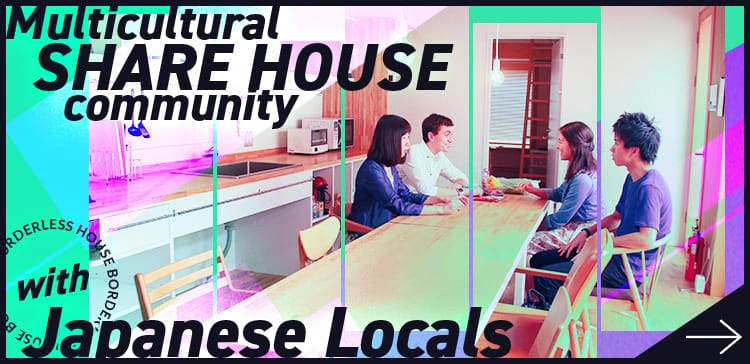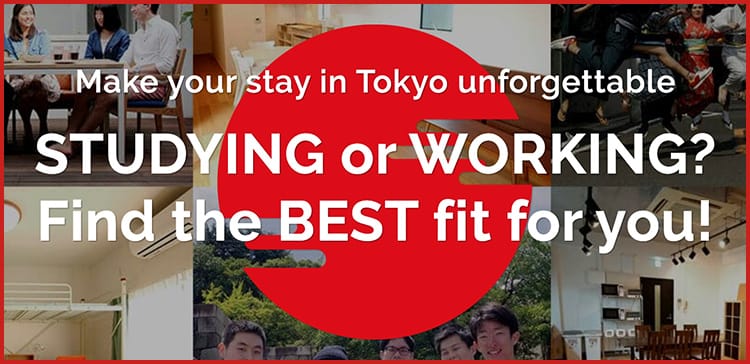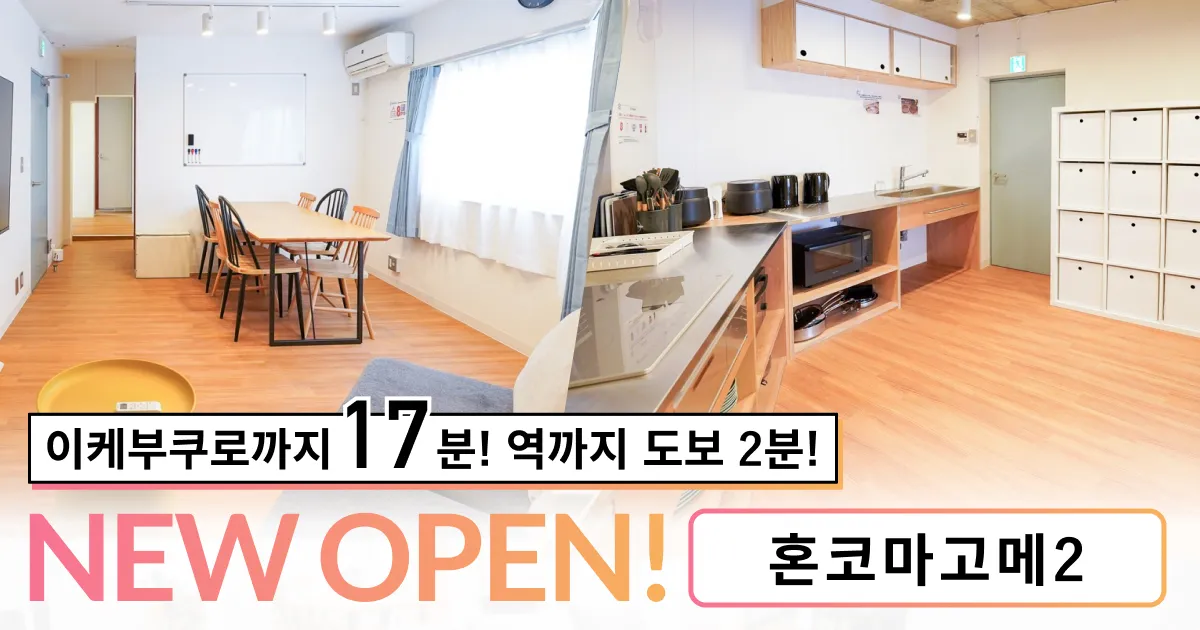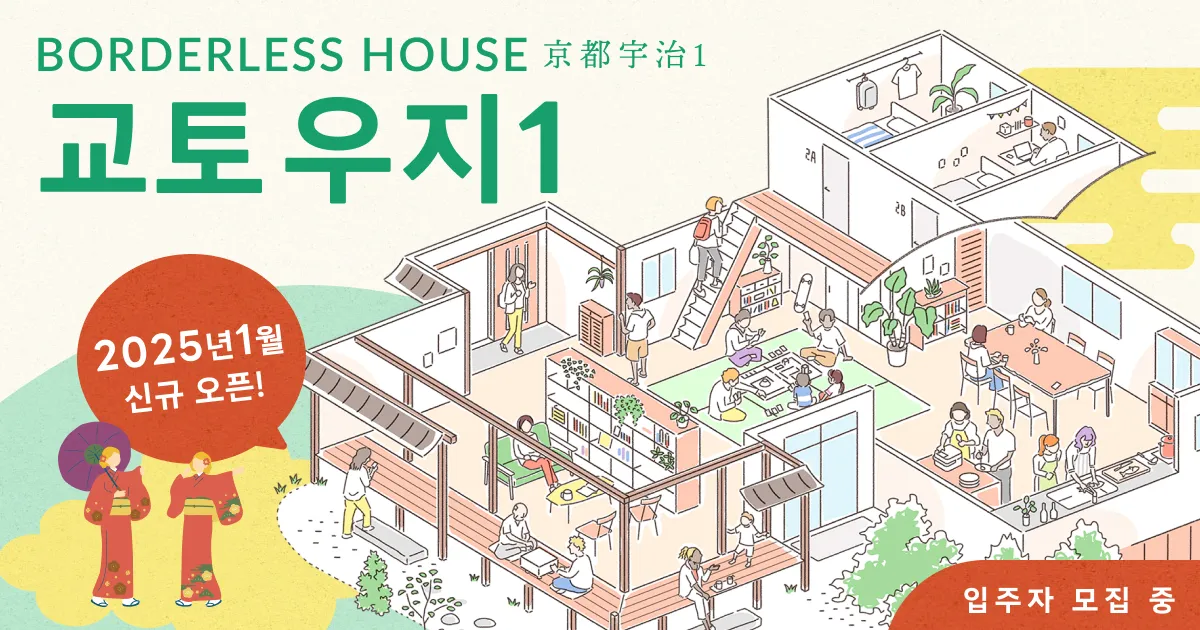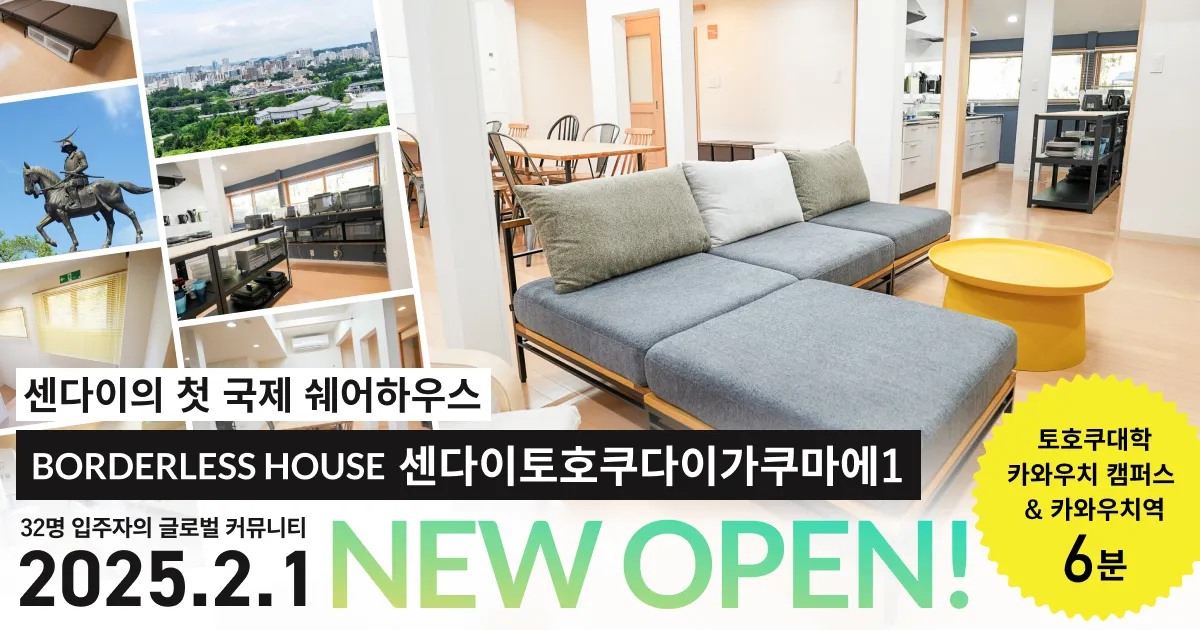NEWS&BLOG
보더리스 하우스의 최신 뉴스, 블로그 갱신정보
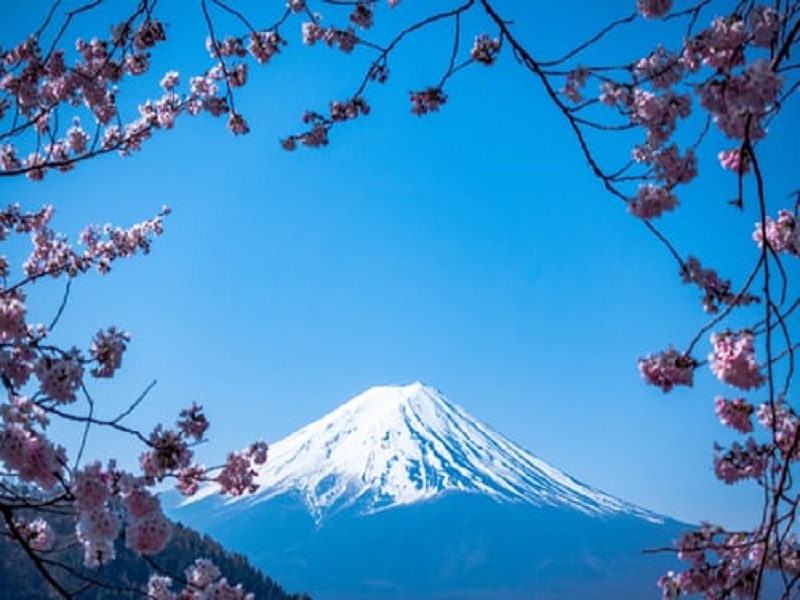
Tokyo is one of the most populated cities in Japan. It is the hub for technology, food, business, and innovation. Natives from other cities in Japan as well as foreigners migrate to the city to live there. With so many local and multinational companies operating from the city, there is no dearth of jobs in Tokyo.
When moving to Tokyo, it is best to first get a little information about the lifestyle, culture, and cost of living, in the city. To ensure that you have an idea of what you’re getting into, we have compiled some information about Tokyo. This guide will help you prepare yourself for your move.
What People Like About Tokyomajor
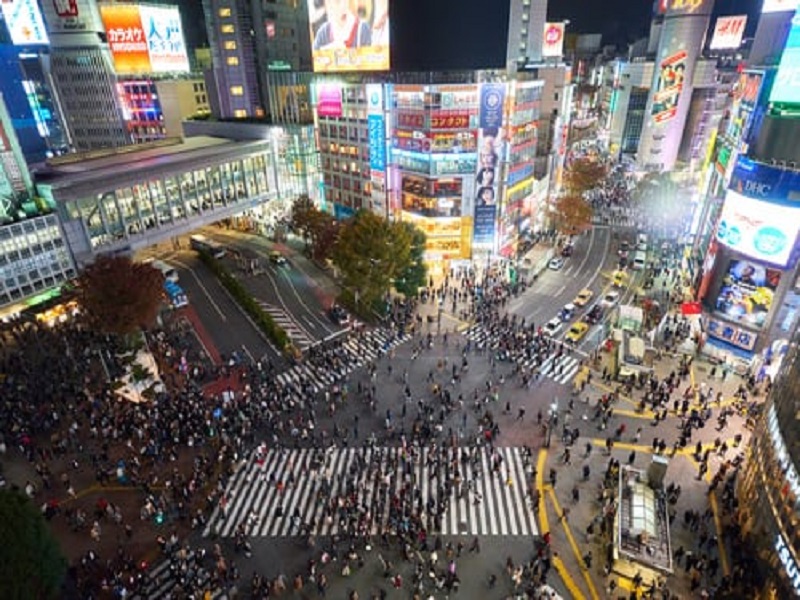
The numerous job opportunities in Tokyo, the rich culture of Japan, and ease of living are three of the major attractions of Tokyo. When living in Tokyo, one experiences the most marvelous combination of corporate life, fashion, food, and fun. During the day the residents of Tokyo are busy hustling and working, while at night the city lights up and offers great nightlife.
From great food to entertainment, Tokyo has it all. There are many restaurants, bars, cinemas and game centers in the city, there's no possibility that one could get bored of the Tokyo city life. While the city is pretty hi-tech and always lit up with lights and hustle-bustle, the government has maintained parks in various areas, to ensure greenery in the city.
The city caters to everyone's needs, whether they are Japanese or ex-pats. The food served in the city is multicuisine, whereas there are many shopping stores in the city that offer different types of fashion products for varying tastes. Tokyo doesn't sleep, shopping centers like Don Quijote and Seijo Ishii are open 24/7 for the customers.
The city offers rich art, culture, and music to the people. The local restaurants and bars are called izakaya are serve the local Japanese food with plenty choice of drink. Tokyo is famous for its upbeat pop music and many restaurants play the same. They offer great cocktails and frequent discounts to keep the place crowded.
Many areas in Tokyo are famous for the artistry. There are plenty of museums, art galleries, and exhibitions in the city. However, you come across the biggest art pieces when you walk around the city. The architecture of the city is beautiful and reliable. The architecture helps maintain a vibe of advancement and hi-tech. Moreover, robots working at various information desks and cafes, leave the people surprised at the development in the city.
The Weather In Tokyo
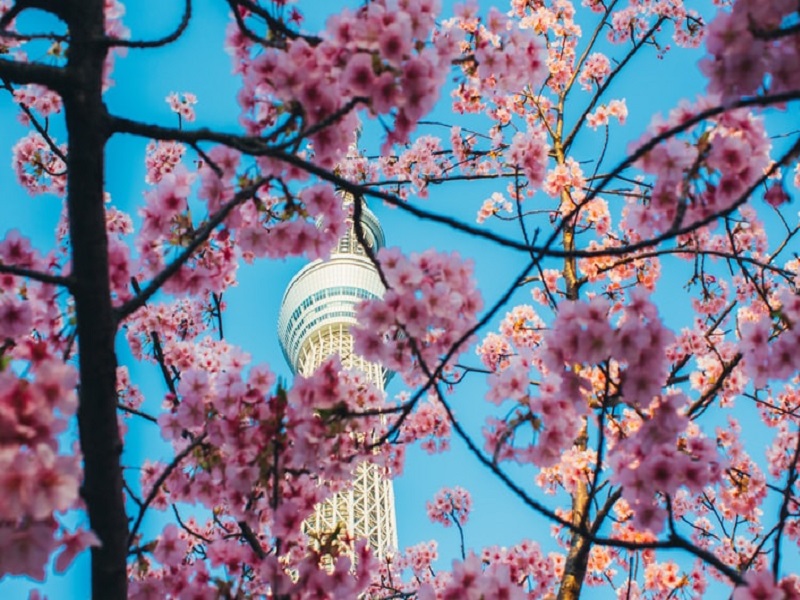
When moving to a new country, it is essential to ensure that you can bear the climate conditions there. Every 2 to 3 months, the climate and temperature in Tokyo changes. There are six seasons that one witness when living in Tokyo:
1. Spring: March to May
The spring season in Japan is the time of Hanami. Hanami refers to cherry blossom viewing events that can be seen from the end of March to the first half of April. The temperature frequently changes during spring, sometimes it's hot and sometimes it's cold.
2. Monsoon: May to the first half of July
The rainy season in Japan is called Tsuyu and it rains almost every day in Tokyo during this time. The atmosphere during this season is very humid. The season starts in the Southern region and moves towards the north. After the monsoons are over, one can feel the heat of summers in full swing.
3. Summer: June to August
The highest temperature during the summers in Japan is 30° Celsius. However, due to the humidity, the summers can often feel unbearably hot. Tom must wear light clothes during summers and keep hydrated to avoid getting heatstroke.
Events like Natsu Matsuri, the summer festival, and Hanabi, the fireworks are joyfully celebrated by the people. The jolliness in the air is evident and the city of Tokyo is sparkling during these events.
4. Typhoon: End of August to September
During the typhoon, some areas in Japan including using Tokyo experience extreme rainfall and strong winds. The weather gets so bad that even umbrellas are unable to bear the brunt of the rain. It is best to check the weather forecast before stepping out of the house during the typhoon season.
5. Autumn: September to November
The autumn season in Tokyo is cool and windy. During the day the night, the temperature drops enough for people to bring out their thin pullovers and enjoy the breeze. The trees of many leaves turn from red to yellow during November, walks around the city are especially blissful during these days.
6. Winter: December To February
The lowest temperature in Tokyo during winters is 0° Celsius. The atmosphere is chilly and you will need to wear gloves during the early morning and evenings. Some years, it snows in Tokyo during the winter. The Omisoka, the day before New year, is celebrated by eating traditional Japanese dishes like soba noodles and Osechi. People also celebrate the new year by drinking alcohol and partying.
Tokyo Attractions: Places To Visit
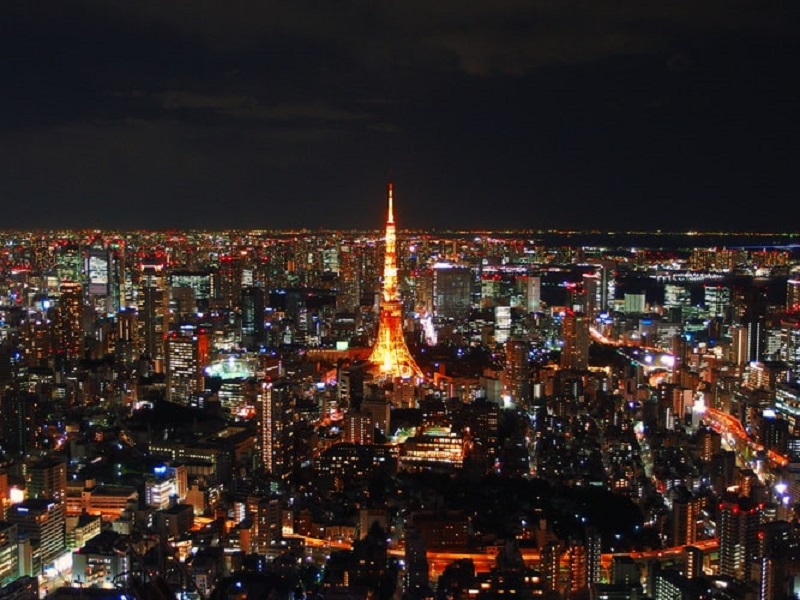
There are many attractive sightseeing places in the city. The view from these places is utterly mesmerizing, whether it’s day or night. Going to visit attractions will definitely bring fun and unforgettable experience into your living in Tokyo. Most of them are extremely crowded during weekends. Some of the famous places to visit in Tokyo are:
1. Sky Tree
2. Shibuya
3. Tokyo Tower
4. National Art Center
5. Sensoji Temple in Asakusa
6. Miraikan and Edo-Tokyo Museums
7. The Imperial Palace
8. The Meiji Shrine
9. Yoyogi Park
Best Experiences In Tokyo
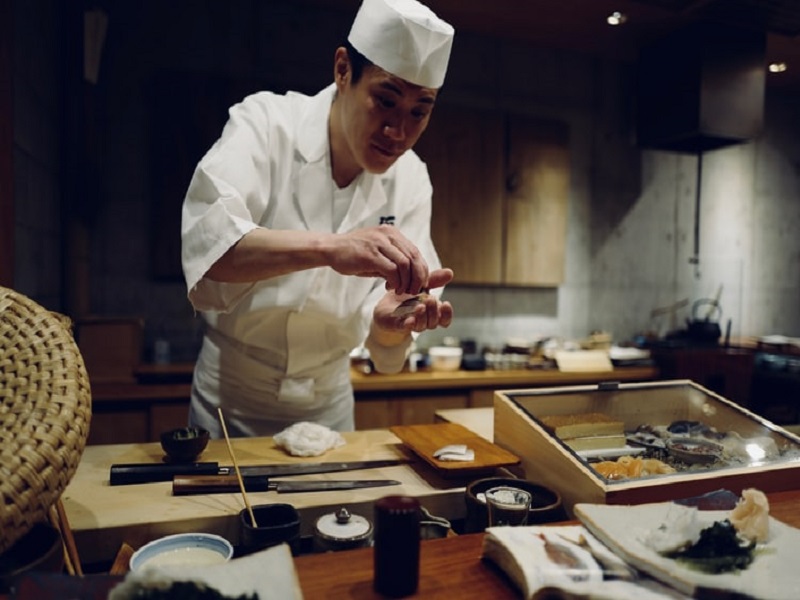 When living in Tokyo there are some experiences that you simply cannot miss out on. While you can spend some days visiting various sightseeing places, many other activities offer the real Tokyo life experience.
When living in Tokyo there are some experiences that you simply cannot miss out on. While you can spend some days visiting various sightseeing places, many other activities offer the real Tokyo life experience.
1. Try out the authentic and fresh sushi at the local places in Tokyo.
2. Visit markets like Harajuku and Asakusa for some window shopping.
3. Spend an evening at the Ueno Park
4. Collect games and anime films from Akihabara and spend your weekend bingeing.
5. Go to Piss Alley for food and drinks and Shibuya for parties.
6. View the traditional Japanese theater art or try out sumo wrestling for fun.
7. Watch a baseball game at the Tokyo Dome.
8. Hike to Mount Mitake or cycle around the city on a breezy day.
9. Go sing karaoke with your friends.
Tokyo has been given the tag of the best overall experience at Tripadvisor. There are many more things to do in Tokyo, and as you spend more time there and experience new things, you will fall in love with the lifestyle.
Facilities That The City Offers
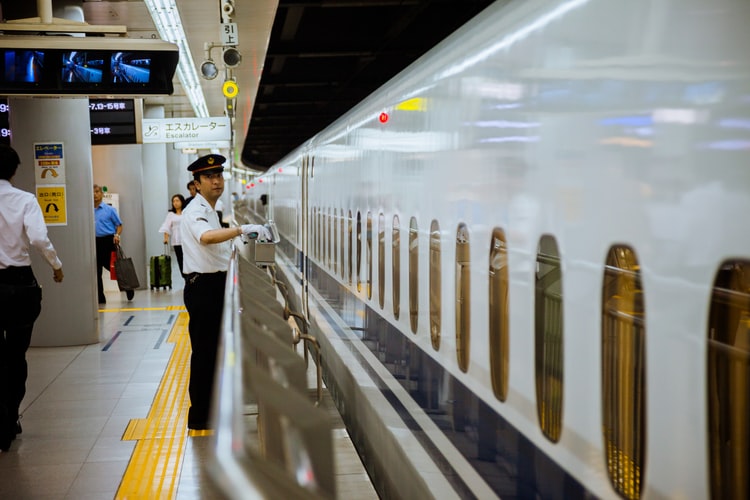
Healthcare
Tokyo offers exceptional and affordable health care services to its residents. The screening of some diseases has been made free of cost. The cost of treatment and prenatal care are borne 30% by the individual and 70% by the government. The motto of the government is that everyone in the country receives medical services. Both private and public healthcare institutions are available in the city.
Insurance
Healthcare is so great that the country has observed the high life expectancy rate in the world. Everyone living in Tokyo is covered by public health insurance.
Clinics, dentists, and hospitals do not accept insurance other than Japan-based insurance. However, they never refuse to treat patients that do not have insurance. The payment has to be made in full and you can apply for reimbursement in your country.
Some healthcare businesses that cater to the expat community, may provide services if you have insurance from the global insurance companies that they partner with.
Clinics
There is a primary clinic available in almost every neighborhood in Tokyo. They provide treatment for problems like rashes, fever, gastric problems, infection, body pain, etc. Some private clinics in Tokyo have English speaking staff for the convenience of expats. However, it is recommended that you take a Japanese speaking friend along, in case they don't. Going to such healthcare clinics for expats costlier than going to any other clinic.
Pharmacies
There are pharmacies located in every neighborhood, mostly nearby stations. Some of these pharmacies are open 24/7.
The medicine provided at these are produced in Japan and might be of a lower dosage, than what's available in your country. If you need a high dosage of medicine, you need to show a doctor's prescription.
Convenient Transportation
The city offers trains and the metro to its residents, making traveling around the city conveniently. They offer wide connectivity throughout the city. These public transportation services are reasonably priced and are preferred over private transport like cars. This is why the commute is overcrowded most of the time.
What's more, the public transport is very punctual, to ensure that the passengers reach their destination on time. The delay of even a minute is very rare and unwelcome. When living in Tokyo, you are usually supposed not to make any delay for appointments. Buses take to places, where the metro network has not yet reached. If you need help while traveling, you can collect brochures, maps, and information from offices at the station.
Shopping
While the rich prefer shopping from malls and branded stores, there are many hyaku-en stores available in the city, where you can buy many household items for cheaper prices. The rates start at 100 Yen. You can also shop for clothes at second-hand shops.
There are many lanes in Tokyo that are famous for the products available at them. Some of these markets are Shinjuku, Shibuya, Harajuku, Ginza, Nihonbashi, and Ikebukuro.
Brands like Louis Vuitton offer an art gallery, there are a cafe and pastry shop at Dior and a spa and beauty salon at Chanel. These additional places offer a luxury experience and can even be visited by people that are shopping at the store.
Safety
The crime rate in Japan is low and it is considered one of the safest places to live. Drink spiking and credit card theft are some of the major crimes in the city, usually occurring in crowded localities. For any help, the police are ready to help and can be contacted at 110. The city offers digital security, infrastructure security, and personal security.
The Cost of Living in Tokyo
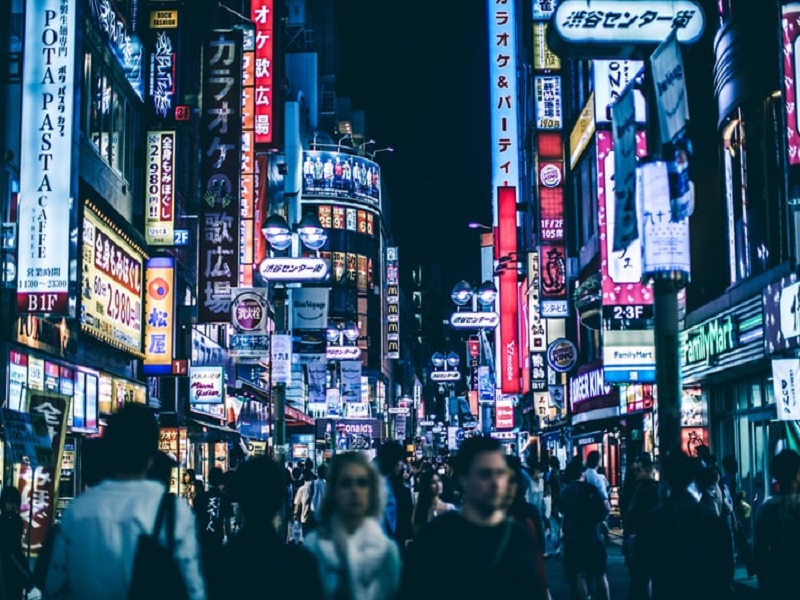
It is common knowledge that Tokyo is one of the world's most expensive cities for expats. The accommodation, food, everything for living is high-class and expensive.
Accommodation
Finding a place to live in Tokyo is quite challenging and expensive. The rent of your apartment is likely to be the biggest expenditure from your income. Apartments in close proximity to the stations are generally more expensive to rent. You can get an apartment within walking distance to the center for around 180000 Yen, whereas if you are living a little farther, the rent will be around 80000 Yen as well. The amenities offered and the area of the property will influence the rent amount.
You could also stay at a share house or an Airbnb hostel in the city, and enjoy their multicultural environment. While you receive less privacy, it is easier to make friends when staying at such places. Such as BORDERLESS HOUSE.
Food
It would be a shame if the delicious food offered by Tokyo isn't listed as the first thing that people like and attracts them to Tokyo. The roads and lanes of Tokyo are occupied by restaurants. By living in Tokyo, you are always exposure to great offering from restaurants where you are allowed to enjoy authentic Japanese food and multi-cuisine food for people who miss home. It is popularly known as the food capital of the world.
The Edo-style sushi that has made the world its fan, was first made in Tokyo. It was first sold at small street stalls and today it is a famous delicacy served everywhere by Japanese restaurants. While Tokyo is considered an expensive place, a few weeks in the city can help you find restaurants that serve lunch at cheaper prices i.e. less than 1000 Yen.
Transportation
The cost of traveling anywhere in Tokyo by public transport is around 200 Yen. You can buy a Suica pass for transportation around Tokyo. This pass is rechargeable. By showing your foreign passport, you can receive discounts on tickets.
The train arrives at the station every ten minutes.
Tax
The Japanese tax for consumption, on income, and security, is way less when compared to the tax payable when living in Europe.
The Challenges Expats Face during living in Japan
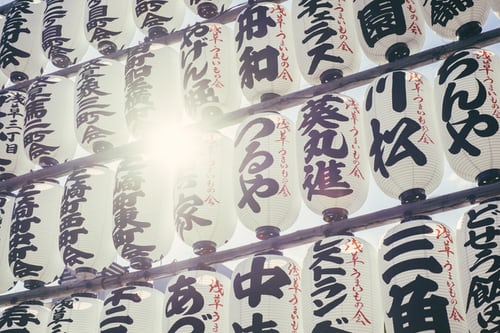
1. Work visa: The biggest challenge faces by expats is getting a work visa in the country. While the process is fast, you must apply at least two months in advance. Before getting a work visa, you can stay in the city for 90 days to secure a job, by first getting a tourist visa.
2. Language: When living in Japan, learning basic Japanese can make your life smooth hassle-free. If you do not know how to speak in Japanese, you might have difficulty navigating in Tokyo.
3. Expensive: Tokyo is expensive. It is best if you move to the city, only if you have a job that will cover your expenses, otherwise, you will be draining your savings.
Relations Between Japanese Locals And Foreigners

Like most countries, the experience with the locals in Japan is no different. They treat foreigners like foreigners, not the same way they would treat fellow Japanese people. Japanese expect that foreigners cannot be made allies with and it is an innate belief that you will not understand their social conditions.
However, if you know how to speak in Japanese it'll be undoubtedly easier for you to make friends. You will also come to know that running daily errands is much more convenient if you can speak Japanese.
Etiquette to consider when living in Tokyo
You can improve your relations and interaction with the locals, by respecting the social etiquette and the cultural norms of Tokyo. The people of Japan believe in politeness, bowing to elders, being punctual, and respecting culture. If you follow these etiquettes you can avoid stepping on their bad foot. Moreover, disturbing others on the train by talking on the phone too loudly, eating while you’re walking, and being unhygienic are some actions that are frowned upon.
How to make friends in Tokyo?
Making friends in Japan can be challenging, especially if you are an introvert. The first friends that you make are most probably going to be your colleagues, you'll also get to know other expats in the city. If you wish to broaden your local friend circle, you could try attending events and gatherings where you might meet Japanese people.
Change In Perception Of Expats After Living In Tokyo
Once you get used to the rush of the city and the overcrowded restaurants and streets, it’ll be easier for you to navigate. You will enjoy the various festivals in the city, and learn about the culture.
Tokyo Expat Community
From students to IT professionals from Europe, Tokyo is home to over 2 million expats. The expat community in Japan is huge and people often meet other English speaking expats via the Meetup app. You can also join an international nomikai that organizes parties and other events, where you can meet other foreigners and locals.
Your fellow expats must have experienced the same things when they moved to Tokyo. Expat forums are platforms that enable you to get in touch with other expats. You can communicate with them and ask queries through forums like Expat Exchange and InterNations.

